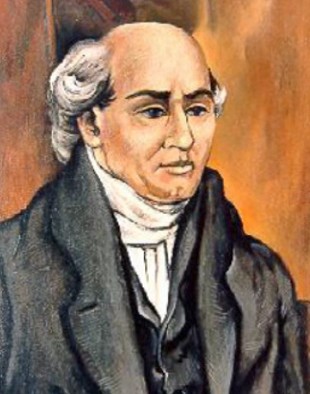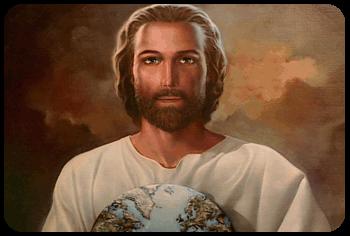
|
|
 |
|
**List: Sinhala Ministry Bible ( බයිබලය )
CINGALESE VERSION Wesleyan Press--1860 S. Bagster [Info only: Sinhalese Character before 1860 John 1:1-14 unknown.] |

Sinhala Bible History (3) 
**List: Sinhala Ministry
Bible ( බයිබලය )
Sinhala...
"III.--VERSIONS OF THE SCRIPTURES IN THIS LANGUAGE. The first Cingalese version of the Scriptures was made when Ceylon was in the possession of the
Dutch. The Dutch Governor Von Imhoff established a printing press at Colombo in 1737, with theview of disseminating the knowledge of the Gospel among the natives. In 1739 an edition of the
Four Gospels in Cingalese was completed at this press, under the care of the Rev. J. P. Wetzel, a
minister of the Dutch church at Colombo. The translation had been executed from the original Greek
by the Rev. W. Konym, a minister of the same church. It was reprinted at Colombo in 1780, after
having been revised and corrected by the Rev. Messrs. Fybrands and Philipsz. These two ministers
likewise superintended an edition of the Acts, printed at Colombo 1771: two learned Cingalese natives
had executed this translation, under the direction of the Rev. S. Cat. The Epistles to the Galatians
and Corinthians were translated by Mr. Philipsz, and printed in 1773; he then completed the trans-
lation of the remaining books of the New Testament, and committed them to the press in 1776. Of
the Old Testament, a metrical version of the Psalter was printed at Colombo in 1775, and republished
in 1778. The books of Genesis, Exodus, and Leviticus were published in 1783. Mr. Philipsz appears
to have continued the version as far as the Book of Job; and after his death the MS. was deposited
among the archives of the Dutch church at Colombo.
The Colombo Auxiliary Bible Society was formed in 1812, and one of the first measures adopted
by the society was the examination of the state of the Cingalese version of the New Testament. It
was found so replete with errors, that a thorough revision, or a new translation, was deemed indispen-
sable, and the execution of this important work was intrusted to a committee of Cingalese interpreters,
under the superintendence of Mr. Armour, an English schoolmaster, well versed in the language, and
W. Tolfrey, Esq., a civil officer under government and eminent Cingalese scholar. As it had been,
however, previously ascertained that a most deplorable scarcity of the vernacular New Testament
existed in Ceylon, a reprint of the former text was made by the Calcutta Auxiliary Society: this
edition, consisting of 1000 copies, was printed at Serampore in 1813, and was presented to the
Colombo Society for the purpose of meeting the urgent wants of the people, while the revised edition
was in course of preparation. As many alterations were requisite in the printed text, the work of
revision progressed but slowly; constant reference was made to the Sanscrit and Bengalee versions,
whence many appropriate words and phrases were obtained. The Tamul version was also of much
assistance, for, owing to the affinity between the two languages, the form of expression in Tamul was
often found to run easily into Cingalese. The Pali was likewise consulted in order to give clearness
and precision to the translation; and Mr. Tolfrey declared that it was expedient to render every chapter
into Pali, before it could be revised with effect in Cingalese. The whole revision was conducted with
continual reference to the Greek text and the English version. In 1815, 200 copies of the Gospels of
St. Matthew and St. Mark were struck off for circulation among Cingalese scholars, and the criticisms
and opinions thus elicited were decidedly in favour of the work, which was declared to be free from
the low and familiar words which disfigured the former text, and which, though of constant
occurrence in the colloquial dialect, are deemed peculiarly reprehensible in the Cingalese written
composition.
The lamented death of Mr. Tolfrey occurred just as the revision had reached the Second Epistle
to Timothy. The prosecution of the work then devolved upon the Rev. Messrs. Chater and Clough,
in conjunction with Mr. Armour, and by their united exertions a complete edition of 5000 copies of
the New Testament left the Colombo press in 1817. They then applied themselves to the preparation
of a version of the Old Testament Scriptures, which they conducted on the same plan as that on which
the revision of the New Testament had been executed. By the aid of grants received from the Parent
and Calcutta Bible Societies, and from the American Board of Missions, 1000 copies of the Book of
Genesis were printed at Colombo in 1818; and in the following year, a second edition of 3500 copies
of the revised New Testament was published. This was soon followed by 2000 copies of the Psalter,
and by 1000 copies of each of the other books of the Old Testament, and the entire version was com-
pleted at press in 1823. Some assistance to this work was granted by the British Government. As
the supply of the Scriptures was still found inadequate to meet the urgent demands of the people,
another revised and cheaper edition was undertaken with the aid of the British and Foreign BibleSociety; it consisted of 2500 copies of the Old Testament and of 6000 of the New. The Pentateuch
at the expense of the British and Foreign Bible Society. The demand,
and Gospels left the press in 1828, and the entire edition was completed in 1830. Farther editions,
consisting of 5000 copies of the Gospels and Acts, and 3000 copies of the entire New Testament, have
subsequently been printed
however, continues to be so rapid and constant that these issues are already in a great measure
exhausted.
Another translation of the Cingalese Scriptures was undertaken by the Rev. Mr. Lambrick, of
the Church Mission, at Cotta, a village near Colombo. The first portion of this version that passed
through the press was the Gospel of St. Matthew, 100 copies of which were printed for the use of the
schools at Cotta. Other portions of the Scriptures were successively issued, and in 1833 the New
Testament was completed at press, followed in 1834 by an edition of the Old Testament, printed at the
expense of the Church My. Society. An edition of 3000 copies of the New Testament has
since been printed at the expense of the same society. This translation, which is generally distinguished
as the "Cotta version," differs from the version set forth by the Colombo Bible Society in the following
particulars:--"1. All the honorific terminations, that is, peculiar terminations of the verbs, nouns,
and pronouns, indicative of respect, used in books in the high Cingalese dialect, are omitted in the
Cotta version. 2. Those terminations of nouns, etc. in common use in the colloquial dialect are
adopted. 3. One pronoun for the second person singular (there are twelve others in use in Cingalese
books) is uniformly used throughout the Cotta version, whoever may be the person spoken to, human
or divine. 4. Words in common use are invariably substituted for learned ones."
The aid of the British and Foreign Bible Society has been extended to both these versions; and
in 1838, 2000 copies of the Cotta version were ordered to be printed at their expense. The total
number of both versions printed by the Colombo Auxiliary, from its commencement down to the
present time, is stated to be not less than 40,000. Although considerable difference of opinion for a
time existed among the mies. respecting the use of honorific terminations, yet it was felt to be
extremely desirable, on all sides, that there should be but one standard version of the Cingalese Scrip-
tures; and the mies. of various persuasions engaged in Ceylon having happily agreed upon the
adoption of a common system, a revision committee was appointed in 1853, and has since been steadily
engaged in the prosecution of its labours. The new translation in course of preparation under this
committee had in 1857 advanced as far as the completion of the entire New Testament, an edition of
which was at once put to press, and that of the Old Testament has made very considerable progress.
There is every reason to believe therefore that no long time will now elapse ere the devoted agents of
my. labours in Ceylon will be in possession of a standard version of the Cingalese Bible.
Meanwhile, it has been found necessary to print more than one edition of the Old Testament according
to the previously existing versions.IV.--RESULTS OF THE DISSEMINATION OF THIS VERSION. Ceylon is the venerated seat of B_ddhism, and one of the chief depositaries of B_ddhistic learning;
yet in no country of the East has the distribution of the Scriptures been attended with more abundant
manifestations of the Divine blessing. Many individual instances of conversion resulting from the
perusal of the word of God in this language are dispersed throughout the records of the Bible, Church
My., and Wesleyan Societies. The following statement by Mr. Clough, one of the translators,
shows the rapid progress of truth through the length and breadth of the island:--"The Bible in Ceylon
is working a great change in the views and feelings of the heathen. Formerly the priests and others
felt but little at its circulation; but since the people have got a more extensive supply, and the effect
of their reading is become apparent, the priests have taken the alarm, and have endeavoured to thwart
the circulation. But the matter has gone too far, and this they now see; for in our schools in the
southern part of Ceylon we have, by the blessing of God, raised up in the midst of the population not
less than 30,000 native Christian readers, who do read, and will read, in spite of the opposition of theheathen."
And in late reports received from Ceylon, the Rev. Mr. Gogerly writes:--"The number
of Cingalese readers is increasing daily; there is much more of a spirit of inquiry than was formerly
apparent, and a greater willingness to read the word of God. In some instances, especially about Marotto,
even Roman Catholics apply for the New Testament. Vital Christianity has not spread among the
people so much as we desire; yet, in the Wesleyan body alone, nearly 1000 sincere Christian men and
women, without enumerating their children and family connections, besides the members of other
sections of the church, daily receive instruction in the Holy Scriptures.""--The Bible of Every Land. (1860, Second Edition) Samuel Bagster [Info only]CINGALESE VERSION Wesleyan Press--1860 S. Bagster [Info only: Sinhalese Character before 1860 John 1:1-14 unknown.]
[Christian Helps Ministry (USA)] [Christian Home Bible Course]